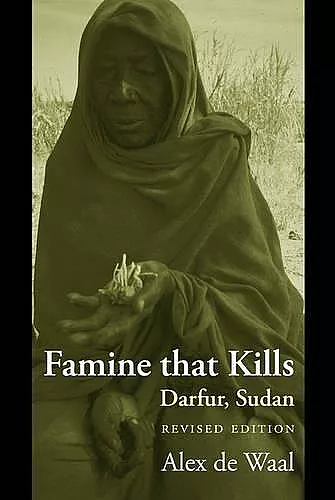Famine that Kills
Darfur, Sudan
Format:Paperback
Publisher:Oxford University Press Inc
Published:10th Feb '05
Currently unavailable, and unfortunately no date known when it will be back

When news of the Darfur famine in the '80s broke in the West, relief experts predicted that, without massive food aid, millions of people would starve to death. Food aid on this scale did not arrive, but millions did not starve to death. Analyzing the famine from the perspective of the rural people in the region who suffered it, Alex de Waal uncovers a number of new and important insights into the dynamics of famine and famine relief. The author argues that deaths during the famine were not due to starvation, but instead were caused by disease, which ensued in the aftermath of the social disruption caused by the famine. In addition, the priority for rural people during the crisis was not to try to save every possible life, but to preserve their way of life for the future. Consequently, he concludes, the huge international relief effort was largely irrelevant to their survival. De Waal's findings have profound implications, not just for famine relief, but for our very conception of 'famine' itself. Already a classic in the field, this revised edition Famine that Kills provides critical background and lessons of past intervention for a region that finds itself in another moment of humanitarian crisis.
...an interesting new preface in which he comments on events in the region since the early 1980s...a useful case study of the dynamics of famine. * Foreign Affairs *
ISBN: 9780195181630
Dimensions: 207mm x 156mm x 18mm
Weight: 336g
288 pages
Revised edition